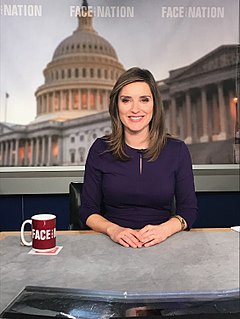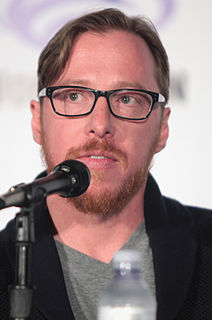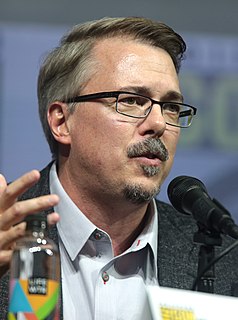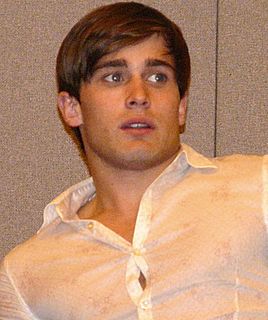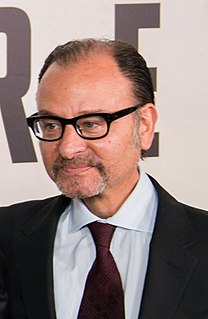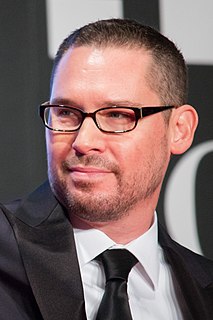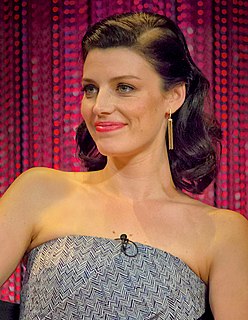A Quote by Carlton Cuse
Being a showrunner meant writing and producing a television show, period, but with 'Lost,' suddenly it became part of the job to promote and be the face of the brand. In a weird way, the story was as much the star as any of the actors, so people wanted to hear from us.
Related Quotes
Face the Nation' is a brand, a mantle, and it's a responsibility to continue to uphold, and to protect. My job is to maintain the brand, grow the brand, and along with our executive producer Mary Hager, help bring the brand along without in any way devaluing the trust that people have bestowed on us over the years.
In entertainment, the technology began giving us greater choice and easier switching before almost any other area. The studios became much more dependent on the stars, not just star actors and directors but also star technicians, star cinematographers. It's a very important evolution in terms of understanding why people are working the way they're working.
Writing and producing television very much speaks to the extroverted part of my personality. I love collaboration, the joint effort of hundreds of people working together to create something. But the other part of who I am is extremely introverted. I love being alone and dreaming up ideas and writing novels.
I grew up doing plays - I went to a stage school after school - and it's always something that I've wanted to do, but, in a weird way, if you do television and film and you didn't go to drama school and don't have a theatrical background, it's hard to get your foot in the door. In the same way that it is for theater actors to get into television and film. There's a weird prejudice that goes both ways.
Once I hit 25, I realized I had to do more than just be an actor. I love acting, but there's something that makes it difficult to just be a man, a grownup. Not to take away from any actors, but I knew I wasn't going to be Tom Cruise. I knew I was a character actor, which is great and I'm proud of it. But I knew that I wanted to do more. I started producing and directing and writing and stuff for the theater, and then that grew out of hand and I sort of lost my control. I've always loved the process of filmmaking. Now I'm much more into producing docs, but I want to direct features.
Essentially, the scripts are not that different. Let's say, in literary terms, it's the difference between writing horizontally and writing vertically. In live television, you wrote much more vertically. You had to probe people because you didn't have money or sets or any of the physical dimensions that film will allow you. So you generally probed people a little bit more. Film writing is much more horizontal. You can insert anything you want: meadows, battlefields, the Taj Mahal, a cast of thousands. But essentially, writing a story is writing a story.
I think television is moving more into movies, particularly with serialization and almost cinematic proportions and expectations. A show like 'Game of Thrones' is a perfect example of that, or even a show like 'The Wire,' which isn't all about instant gratification it's about inviting someone into the long experience of television the way you'd be invited into a theater for two hours. So I think in that way, and the quality of writing in television is probably much better than most film writing.
There's a lot of great writing, and characters, and stories being told in television nowadays. And much more than there used to be. The opportunities to tell stories, because of the opportunities to show content. And so it's drawing actors from cinema, movie actors, actors to where there's a lot of opportunities to where you can tell stories.
I wanted to be a director first to protect my writing. I'm a playwright and you don't need to protect your writing when you're in the theater because everyone's there to protect the writing. When I had an idea for a film that I really cared about as my own, I wanted to direct it, and then I immediately became interested in directing in and of itself because it's such a deep art. You suddenly have all these tools at your disposal to tell the story.
American actors are very different to British actors who have generally studied and been brought up culturally with the sense that the writer is the star and that their job is to serve the writing. Whereas Hollywood actors are brought up to believe that the actor is the star, and everything and everybody is in the service of them.

